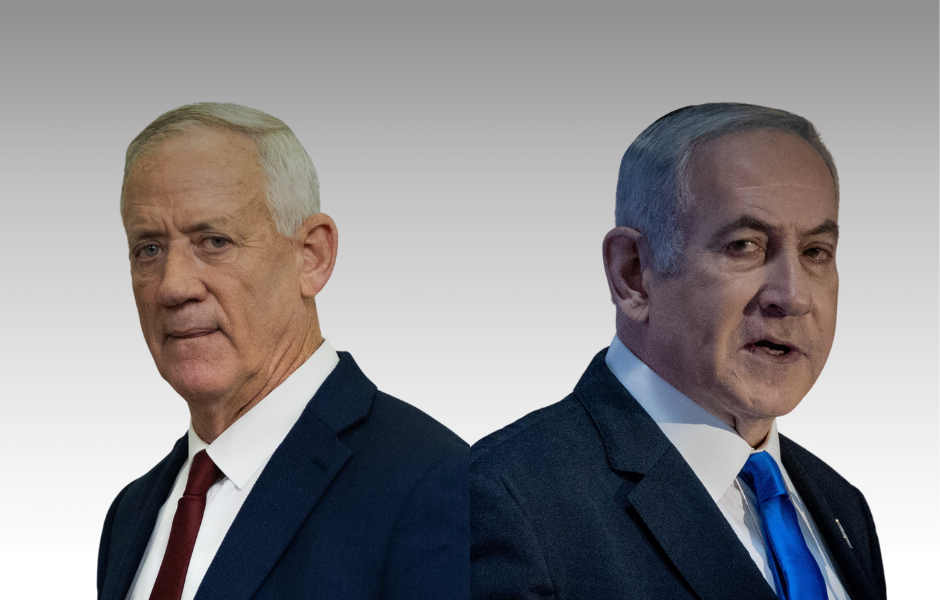The Case for a Lean, Unified Wartime Cabinet
The main demand made by Benny Gantz, chair of the National Unity party, for entering an emergency government is the establishment of a war cabinet. Why is this important and what are the powers of a 'war cabinet'?

On October 11, 2023, an emergency government was established in which the National Unity party, which until now has sat in the opposition, has joined the existing coalition. The main — and perhaps only — demand of National Unity Party Chair MK Benny Gantz for entering an emergency government was the establishment of a war cabinet with powers to direct military operations during the current war.
A war cabinet is not a new concept created solely for Operation Swords of Iron. In Britain, during the Second World War, following the establishment of a unity government containing all the main parties, a small war cabinet was formed with just five members, and it was agreed by the government that this cabinet would make the major decisions regarding the war. And in 1973 in Israel, Golda Meir’s “kitchen cabinet” effectively operated as a “war cabinet.”
What was behind the demand for a “war cabinet”?
Israel already has a security and foreign affairs cabinet, which is the executive arm of the government on defense matters, but there would appear to be several factors that support the formation of a smaller war cabinet to direct the current war.
First, the existing cabinet has 10 members. With the addition of new members from National Unity, it would have become too large and unwieldy to be able to direct the fighting.
Second, the composition of the existing cabinet was mainly shaped by coalitionary or party political considerations, and a good number of its members lack the proper training and background to manage a major military operation. Such considerations should not be allowed to interfere with the management of the war.
Indeed, the Agranat Commission report following the Yom Kippur War and the Winograd Commission report following the Second Lebanon War both included explicit recommendations that a “war cabinet” be established during wartime — a small body containing ministers with defense experience that can direct the security crisis efficiently and maintain confidentiality.
Third, as noted by the Agranat Commission, a war cabinet is also needed so that the other government ministers can continue devoting their full attention to the affairs of their ministries during wartime, and that these affairs are not neglected during a time of national crisis. In light of the events of the last few days, when there have been massive civilian efforts to help out in areas for which the state is responsible (such as supplies, equipment, and transportation for both civilians and soldiers), it is clear that it is hugely important for cabinet ministers to focus on their fields of ministerial responsibility.
Finally, it would seem that Gantz’s demand also stems from a practical reason: if the National Unity Party has only two or three votes in the cabinet, then the party will have no impact on the management of the war. In practice, the pre-emergency coalition would retain complete control. In a smaller war cabinet, however, Members of Knesset and security experts Benny Gantz and Gadi Eisenkot would have considerable influence over events. This influence is extremely important for the war moving forward, as the current government did not enjoy a great deal of public trust before the conflict, and this trust has only ebbed further following the failures of recent days.
For the government to be able to face up to the difficult decisions it will face over the coming weeks, it is important that it will include people who can restore public confidence and can rethink the security doctrine that has led to the current situation.
What are the powers of a war cabinet?
In Israel, the military is subject to the authority of the government. In a 2017 cabinet decision, the government adopted the recommendations of the commission on the work of the security and foreign affairs cabinet (the Amidror Commission), which defined the cabinet’s powers during wartime.
The powers in question include (according to the Amidror Commission):
- Defining the strategic goals of military operations, after assessing several relevant alternatives.
- Providing policy guidelines to military leaders, while indicating the targets to be achieved by the end of the military campaign and emphasizing the boundaries to be respected while the campaign is ongoing.
- Conducting thorough assessments aimed at ensuring that the operational plan will achieve the foreign policy goals, while taking into consideration the precise picture of current conditions.
- Identifying additional, complementary efforts (alongside the military effort) that the political leadership or other operational actors should pursue in order to increase the operation’s chances of success, or to help achieve its strategic goals. This should include making use of the extensive professional knowledge held by Israel regarding defense and foreign affairs issues.
According to the emergency government agreement, the aforementioned decision-making powers remain with the existing security cabinet, while the wartime cabinet is responsible for the realization and implementation of such decisions. It is to be hoped that this set-up will lead to efficient and successful management of the military campaign, with the IDF receiving clear instructions from the political leadership about the campaign’s concrete and achievable goals.
This was first published in the Times of Israel.
